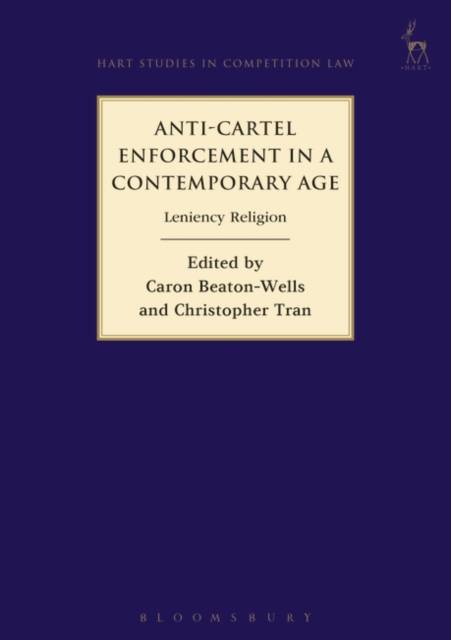
- Retrait gratuit dans votre magasin Club
- 7.000.000 titres dans notre catalogue
- Payer en toute sécurité
- Toujours un magasin près de chez vous
- Retrait gratuit dans votre magasin Club
- 7.000.000 titres dans notre catalogue
- Payer en toute sécurité
- Toujours un magasin près de chez vous
Anti-Cartel Enforcement in a Contemporary Age
Leniency Religion
Description
Leniency policies are seen as a revolution in contemporary anti-cartel law enforcement. Unique to competition law, these policies are regarded as essential to detecting, punishing and deterring business collusion - conduct that subverts competition at national and global levels. Featuring contributions from leading scholars, practitioners and enforcers from around the world, this book probes the almost universal adoption and zealous defence of leniency policies by many competition authorities and others. It charts the origins of and impetuses for the leniency movement, captures key insights from academic research and practical experience relating to the operation and effectiveness of leniency policies and examines leniency from the perspectives of corporate and individual applicants, advisers and authorities. The book also explores debates surrounding the intersections between leniency and other crucial elements of the enforcement system such as compensation, compliance and criminalisation. The rich critical analysis in the book draws on the disciplines of law, regulation, economics and criminology. It makes a substantial and distinctive contribution to the literature on a topic that is highly significant to a wide range of actors in the field of competition law and business regulation generally.
From the Foreword by Professor Frédéric Jenny ' ... fundamental questions are raised and thoroughly discussed in this book which is undoubtedly the most comprehensive scholarly work on leniency policies produced so far ... [the] book should be required reading for all seeking to acquire a deeper insight into the issues related to leniency policy. It is a priceless contribution ... 'Spécifications
Parties prenantes
- Editeur:
Contenu
- Nombre de pages :
- 360
- Langue:
- Anglais
- Collection :
- Tome:
- n° 10
Caractéristiques
- EAN:
- 9781849466905
- Date de parution :
- 24-09-15
- Format:
- Livre relié
- Format numérique:
- Genaaid
- Dimensions :
- 170 mm x 249 mm
- Poids :
- 816 g






